Laura Wood tells us about writing a book on her battle with post-traumatic stress disorder after the birth of her son
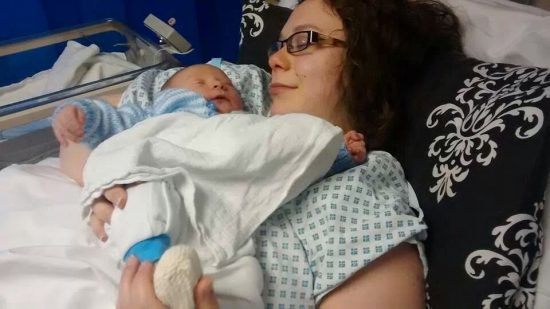
After a deeply traumatic birth, Laura Wood survived on autopilot until she, in her own words, started to ‘unravel’ weeks later. Several years on, as her son starts school, Laura has decided to write a book about her experience to help other mums dealing with post-traumatic stress disorder (PTSD).
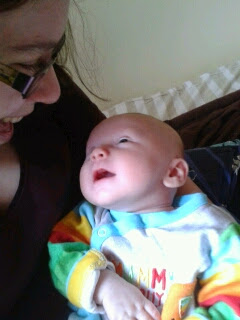
It’s tricky to identify a starting point: I think probably all my life, to some extent. I was always ‘highly strung’, rather eccentric, and an unusually imaginative child: I had about 50 imaginary mates, pets, a wizard, and a couple of parallel universes thrown in! All this was an escape for me.
I think I was probably affected in some way by my mum’s untreated postnatal depression, plus I was bullied a lot at school – and I was very close to my maternal grandmother, who died when I was ten. It was around that time that my mental health became a real problem.
I struggled with insomnia, mood swings, suicidal thoughts, and self-harm. This led to an in-patient admission in an adolescent psychiatric unit when I was 15 and a diagnosis of bipolar disorder at 16.
So, when I fell pregnant at 25, my mental health issues were very much established as a part of my life, rather than something that was new to me.
I was completely on autopilot. The lights were on and no one was home
Since he was born, it’s been a gradual process of collecting the puzzle pieces to work out exactly what happened. I had a birth debrief at the hospital when Arthur was a few months old, and another with an independent midwife when he was two and a half, and still every time I look at the notes I learn something new.
But I know that I went into labour with an undiagnosed urine infection, and Arthur was back-to-back, and that combination meant days of agony without progress. I suspected that something was wrong, but was told that it’s very normal for first-time mums to have a long latent phase, that this can be uncomfortable, and to have a bath, have some paracetamol, etc etc.
By the time they caught it I was very poorly. I had an epidural, which only partially worked. There was quite an aggressive failed forceps delivery, which damaged the muscles in Arthur’s face. Then an emergency c-section and a big haemorrhage. Followed by an infection and another haemorrhage after that. It was pretty grim.
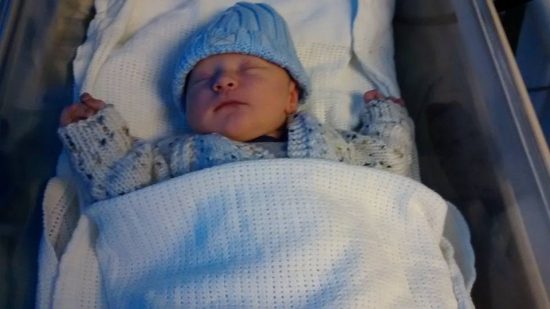
In the early weeks we were contending with my still being quite unwell physically, in and out of hospital, and feeding difficulties on account of Arthur’s tongue-tie. We struggled to access any help with this because I wasn’t breastfeeding, even though he was jaundiced and couldn’t stay awake long enough to feed.
I seemed to be coping pretty well mentally, but I was completely on autopilot. The lights were on and no one was home. It was when he was about four or five weeks old that I started to unravel.
I was having flashbacks and nightmares, intrusive thoughts and all-consuming anxiety. I had no idea that you could get PTSD from childbirth and didn’t know what was happening to me.
I want to show that it is possible to forge a new way of being
I became suicidal and very unsafe and was admitted to the psychiatric mother and baby unit in Winchester. This saved my life, and I was able to remain with my baby as I began to recover. While there, I was diagnosed with Complex PTSD: essentially my traumatic birth experience reawakened earlier traumas in my life.
This explained both how unwell I was at the time and my lifelong history of mental illness. It was a turning point for me in that I began to make sense of the difficulties I had always had and, eventually, to help myself start to overcome them.
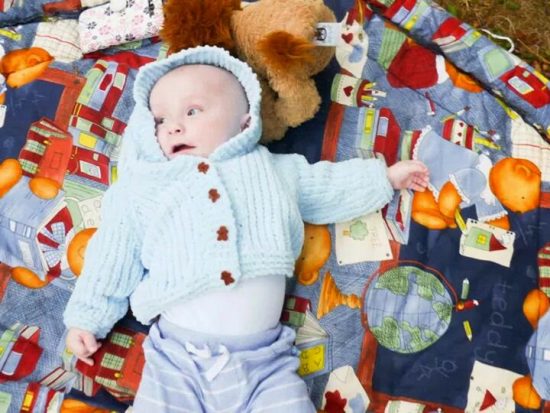
Firstly, because there is such a lack of understanding, still, around birth trauma. It’s simultaneously so common and so hidden. Since I’ve been speaking out about what happened to me, I have had countless emails, social media messages, and phone calls from women, many of them strangers or near-strangers, pouring out their grief over their birth experiences, often for the first time.
Secondly, because, in the first few years of Arthur’s life, I felt completely stuck. I couldn’t see a way forward and I was terrified that I would always suffer like this. Recovery felt meaningless when poor mental health was all I’d ever known.
I want to show that it is possible to forge a new way of being and I want to share some things that helped me in hope that they’ll be useful to others.
Go to allmyworldlyjoy.com to pledge to support Laura in writing her book. NCT members can get 10% off their pledge until the end of November 2018 with the code NCT10.
Thirdly, because there is so much misinformation flying about when it comes to Complex PTSD. Eighty per cent of people – mostly women – with this diagnosis have disclosed childhood trauma or abuse, and that’s only the ones who have disclosed.
We need to start responding more compassionately to people whose adverse childhood experiences have injured them in this way, and we need to wake up to the effects that these experiences can have during pregnancy, birth, and parenthood.
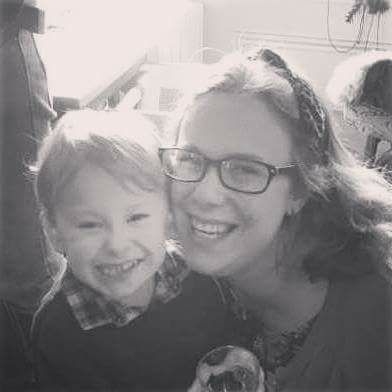
When I fell pregnant, I was half way through a PhD in medieval history, and I finished my doctorate around the time of Arthur’s third birthday. One of the women I wrote about in my thesis was Lady Margaret Beaufort, mother of Henry VII, and she’s a bit of a hero of mine.
At nine months pregnant, she was only thirteen years old, newly widowed, isolated and vulnerable. It was a long and difficult labour, and it was doubted whether either would survive. But they did, although she never had another child.
The two were extremely close, and, as I was researching for my thesis, I came across a letter from Margaret to Henry, in which she describes him as ‘my son and all my worldly joy.’
I chose it as the title for my book because I want to emphasise that, in spite of all the difficult and painful things that have happened along the way, the love between a mother and her baby – myself and Arthur – is paramount and really does conquer all.
Because I can’t do this alone. Honestly, I’m terrified. I keep in touch with the book’s supporters via regular blog posts, email, and social media, and it’s their encouragement and their belief in me which keeps my self-doubt at bay enough for me to keep writing.
In many ways, this is not just my story: thousands of families are affected by birth trauma every year, and there is already a vibrant community of passionate people who are striving to improve what care and support is available. We need to do this together.